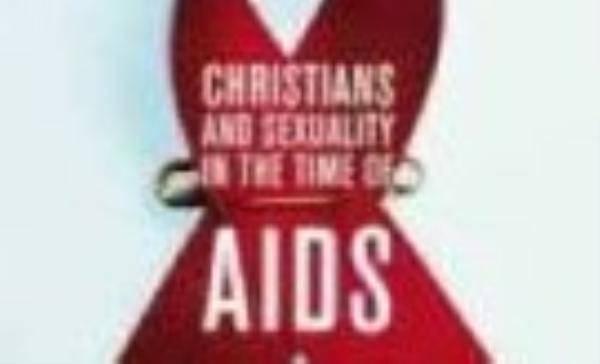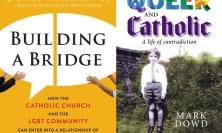Early HIV/AIDS epidemiology showed that the worst affected countries in Europe were the traditionally devout daughters of the Church - France, Spain and Italy. Huge denial existed in those countries, blighting realistic and constructive prevention campaigns, provoking political scandals, even legal actions. James Alison asks in his vintage Foreword, why introduce the fruit of a francophone HIV Colloquium to an English readership? He finds a surprising answer in terms of “a new cultural passageway” [1]:
“In different ways, each of the contributors to this colloquium is inside this tentative creation of a new and non-arrogant cultural passageway. Their parameters are formed not only by the world which has become visible in the time of AIDS, but by the twin challenges of recognising the loss of credibility of a religious teaching based on collapsing notions of normativity, and yet also recognising the importance of discovering and helping to make strong and viable emerging forms of normativity which lead to flourishing.”
This ecumenical collection owes much to Dominican inspiration, particularly in chapters by Timothy Radcliffe and Antoine Lion. The Order of Preachers was one of the first religious orders to rise to the challenge of HIV, both in the UK and France, with a conference in 1986, and an Anglo-French publication in 1990. ‘Christians & AIDS’ began in 1990 to respond ecumenically to HIV/AIDS challenges and convened the Paris Colloquium in 2006 of which this book is the fruit.
It initially questions the directions in which prevention debates and theological reflection travel, not least in seeking to establish some common reference points. It movingly roots the discussion in the stories of real lives. In retrospect, I believe that many responses to HIV, whether from people of faith or secular agencies, have been dominated by ‘arms-length stigma’, avoiding realities through an irrational fear of ‘contagion by association’, stigma by any other name. In France, this often led to fairly abstract debates while well-researched, effective prevention strategies were delayed until the intellectual principles were agreed.
This can be compared with an Anglo-Saxon avoidance of such rigour, clutching at quick-fix solutions such as wider availability of condoms, or injecting equipment, without undertaking a more rigorous needs assessment. The “HIV problem tree” adopted by CAFOD offers a more comprehensive approach, holding together a grasp of real-life issues and a robust methodology [2].
News headlines announced recently that the greatest increase of HIV infections in the UK for 2007 (6840) was amongst young gay men (38% -2,630), even though there had been a small decline in those heterosexually infected in Africa, or newly diagnosed here through heterosexual transmission. Too many Catholics, especially those in, or training for, ministry have become scandalously complacent about the impact of HIV.
It is not good enough to be moved by the plight of grandparents, sick mothers and children, on exposure visits to HIV-burdened countries, yet remain silent in the face of AIDS on one’s own doorstep. No ‘innocent victim’ scenario can be pitched against an ‘acceptable’ but equally tragic face of HIV whether in Soweto or Soho. In spite of prophetic work by the authors of “Christians & Sexuality in the Time of AIDS”, and other theologians worldwide, faith leaders still appear to fear fully compassionate, just responses. Theological truth is easily compromised by ideological dishonesty.
This book’s central chapters offer reflections with Eric Fassin, a specialist in the politics of sexuality, gender and race, exploring sexuality, democracy and transcendence, as much from a linguistic as a social sciences perspective. Lytta Basset, a Swiss Reformed theologian, reflects upon authentic sexual partnership in a context of mutuality and friendship, not as a renunciation of individuality but as energising personal differentiation. Timothy Radcliffe develops his recent thinking on the Eucharist as a paradigm for understanding varied aspects of Christian faith and life, in which a Eucharistic language of bodily giving and fidelity offers a framework to search for growth in our understanding of what it is to be sexually holy. Abdon Goujo, a public health specialist coordinating HIV programmes in the Congo, offers a pragmatic, open-minded ‘View from Africa’.
Antoine Lion’s concluding chapter shows how little progress has been made by religious institutions and their leadership in living positively with HIV. They lock themselves into discredited abstinence-only approaches to HIV prevention, with little appreciation of prevention processes. They spiritualise the disempowering oppression of women and children, victims not only of HIV, but of poverty, violence and human sexual trafficking in a global market. For the most part, they fail to offer any gay-respectful pastoral ministry, seeking to re-closet the reality of diverse sexual orientation, thus encouraging guilt-laden, self-hating, and risk-ridden sexual activity.
Much excellent content is unfortunately marred by shoddy production. Misprints abound but the most glaring howler has to be on page 29. Here the translation shows little understanding of public health or HIV, nor an awareness of gay issues. Clearly not knowing that PACS is the acronym for ‘Pacte Civil de Solidarite’ – the French system of civil unions of either gender, the translator obviously ‘Googled’, discovering ‘Picture Archiving and Communication Systems’, an electronic storage system for x-rays and scans!
Translating ‘contamination’ instead of ‘infection’ is highly stigmatising; ‘over-contamination’ is inaccurate when ‘re-infection’ is meant. Gay men are constantly pathologised as ‘homosexuals’, while the word ‘gay’ hardly appears. This may be a weakness of the original text where ‘homosessuel’ might be the term preferred by French Catholic publishers, rather than the colloquial ‘gai’. Content-wise, a commendable effort by Continuum; quality-wise, expect plenty of remaindered copies!
Martin Pendergast
![]() Find this book at Continuum Books
Find this book at Continuum Books






